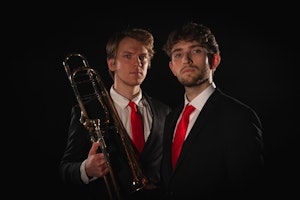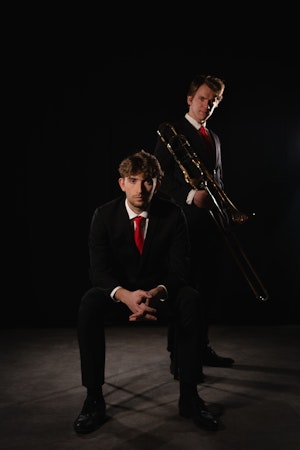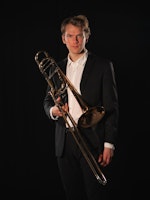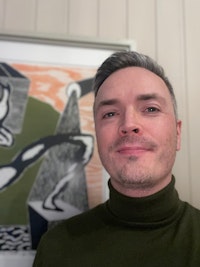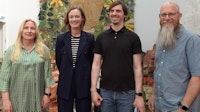They point out that the current project is neither stage music nor street music, but a sort of combination of the two.
“For example, the electric piano we have with us sounds quite all right, but in comparison with a real grand piano it’s terrible,” Fagelund explains. For the concerts in December they don’t know yet if they will be standing and playing in the rain or snow. “But this is a completely different thing. You have to let go of the idea that everything must be perfect.”
“We never considered being very conservative or traditional,” says Einarsson. The trombonist, pianist and composer describes their repertoire as including everything from commercial songs to theatre, new music and storytelling. They have also worked with a director. On the Christmas tour old favourites such as “O Holy Night” are on the programme, but this does not affect their musical integrity. “We want to be more than just music. A show, more than a recital in the Levin Hall [the chamber music hall at the Academy]. A performance rather than a concert.”
“We don’t market ourselves by saying that we’ll come and entertain people. We come to communicate, and to convey the values that they want us to promote,” Fagelund adds, and praises his versatile colleague highly. “I can’t imagine being able to work with anyone other than Jón in the same way.”
Post-corona life
The two music students take an apparently carefree view of the future. Einarsson thinks that the project will still account for part of their income, even after the most digital year in the history of cultural life has ended.
They agree that it depends on which direction they want their careers to take after earning their Bachelor’s degrees.
Do they have any tips for other musicians who are unemployed and desperate now?
Fagelund is quick to recommend Andreas Sønning’s course on concert production and Erlend Hovland’s Performance Studies as subjects at the Academy.
“Erlend presents the idea that there is something bigger than just being an orchestra musician. That’s exactly what we’re doing. This applies to everyone who is involved in art – it’s about developing a good product through knowledge and the development of that knowledge.”
Einarsson says, “You’re selling yourself and your work regardless of whether you’re a freelance musician or have a permanent position.” He admits that he is not especially comfortable with that.
“That’s why your product has to be something you love. Otherwise you’ll never find the energy to sell yourself and earn a living from it.”
Fagelund enthusiastically adds his own view of the matter: “But you also have to try things out. Go outside your comfort zone, outside the norm. Dare to be innovative.
